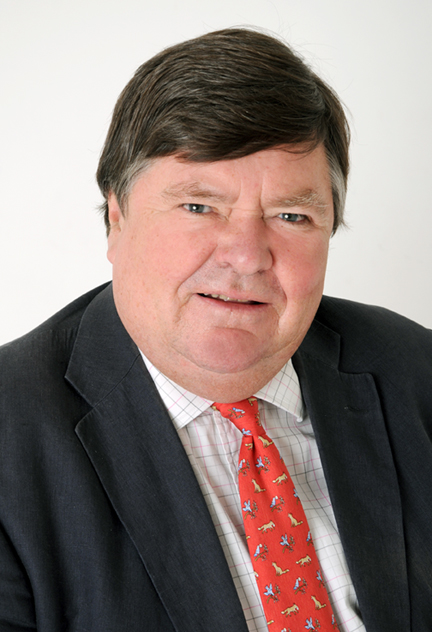9th December 2014
Romanian Revolution through British Eyes/Christopher Walker: ‘Scoop with real bullets’

‘Although I spent four months in Romania covering the revolution from early January 1990 through until world attention faded, my reasons for being there – I was officially Middle East Correspondent of the Times based in Cairo – bore more resemblance to Evelyn Waugh’s hilarious satire, Scoop, than any hard-nosed, tale of derring-do.
For personal reasons, the paper’s respected East Europe correspondent Roger Boyes had to abandon ship at Christmas 1989, when things were getting hot in Bucharest. A panicked appeal for anyone in the London newsroom who was carrying a passport led to the bizarre despatch of the Agriculture Correspondent , who was promptly wounded by gunfire (not too seriously), resulting in an emergency call to Chelsea, where I was on home leave.
The apologetic executive explained “sorry about the holiday old boy, but at least you have seen plenty of wars and you have been there” (with Gorbachev in May 1987 in my previous role as Moscow Correspondent, when the only food for sale in Bucharest market was nettles and a scrawny dog was despatched to patrol the city centre with a “down with Ceausescu” placard around its neck).
Little had prepared me for the aftermath of the violence, with Securitate snipers on the loose in tunnels under the capital and Balkanesque rumours prevalent that that the discontent that drove Ceausescu’s flight on December 22 had been encouraged by KGB agents acting on Gorby’s orders. But the Kremlin chief has certainly done nothing to disguise his contempt for the Stalin-style personality cult of the dictator.
As in many such conflicts and uprisings around the globe, it was a hotel which gained iconic fame as media HQ (the Commodore in Beirut, the Continental in Vietnam. The American Colony in Jerusalem, The Belfast Europa, etc, etc) and in Bucharest, it was the Intercontinental – famously likened by the disapproving veteran traveller Patrick Leigh Fermor to “A monstrous mouth organ.”
The “InterCon” as it was always known, witnessed its own violence, being stormed by irate, coal-blackened (and often drunk) Jiu Valley miners hunting for the hated hacks (wisely barricaded in the first floor press centre, where in those far off the days, the rickety telex held sway and the mobile phone had not been dreamed of). At all hours, protesters gathered in the square below chanting “Jos Comunismul”, two words of Romanian I shall never forget.
The flavour was well evoked by Alec Russell of The Daily Telegraph in “Prejudice and Plum Brandy – Tales of a Balkan Stringer,” in which he recalls when he first arrived, rucksack in hand, “ the stentorian voice of the veteran Times correspondent was booming round the foyer as he thundered his story down the line to London.
“No, ducky, that’s T as in Tommy…bloody hell!’ (pause for breath )’Hey, you! Can you shut up down there! Anyone would think it was Nicu’s bordello; bloody foreigners…Where was I? Ah, yes, ‘Securitate…point paragraph. ..’It was a boisterous, bewildering but fittingly Byzantine atmosphere.”
It certainly was. Just a few of the random events that have stuck in my mind even before the impending 25th anniversary stirred the memory pot are my translator unexpectedly taking Confirmation from a priest we had just interviewed, greeting Rupert Murdoch, who arrived by private jet with TV satellite dishes and hundreds of tins of coffee as potential sweeteners , side by side on the tarmac with Romania’s only astronaut, Dumitru Prunariu, finding a bowl in the InterCon’s shattered kitchens for Murdoch’s then wife, Anna “so that he can have his bran flakes to keep regular” and being told in the glory days of the rival, 1914-built Athenee Palace Hotel, that if a guest left a furled umbrella on his bed in the morning, there would be a woman waiting in it when he returned.
More sombre among my revolutionary memories was the discovery of the huge aids problem multiplied by Ceausescu’s mad belief that all children should be given blood transfusions for their health, the unforgettable stench of the orphanages , the nuclear bunker under his mansion and the sordid phallic golden fish taps over his wife Elena’s bath. Wall slogans pointedly referred to her as “the illiterate.”
Etched in my mind also is the (translated) introduction to the first locally-produced memorial book on the revolution. In it, Stefan Mitroi wrote poignantly: “Our tears have not dried up and will never do. We will be forever indebted to those who made their highest sacrifice.
“We will always mourn them. We will miss them as long as we live. We will always ask ourselves in pain: Why could the air not stop the bullets getting into their bodies?
“So many are the houses where parents, with their souls heavy from so much crying, are waiting for their children to come! And so many the mothers who pray in the doorways that the distant white light take with it the faces of their forever departed sons!” ‘
By Christopher Walker
Journalist
Disclaimer: This account does not represent the view of the Her Majesty’s British Government, but is a personal recollection of the December 1989 events in Romania.